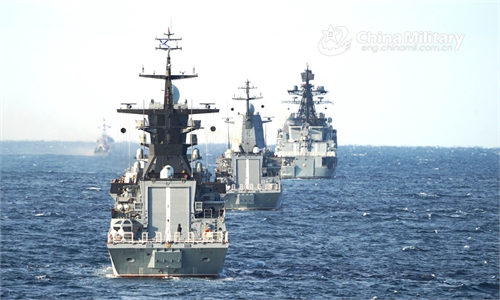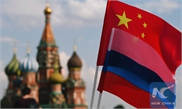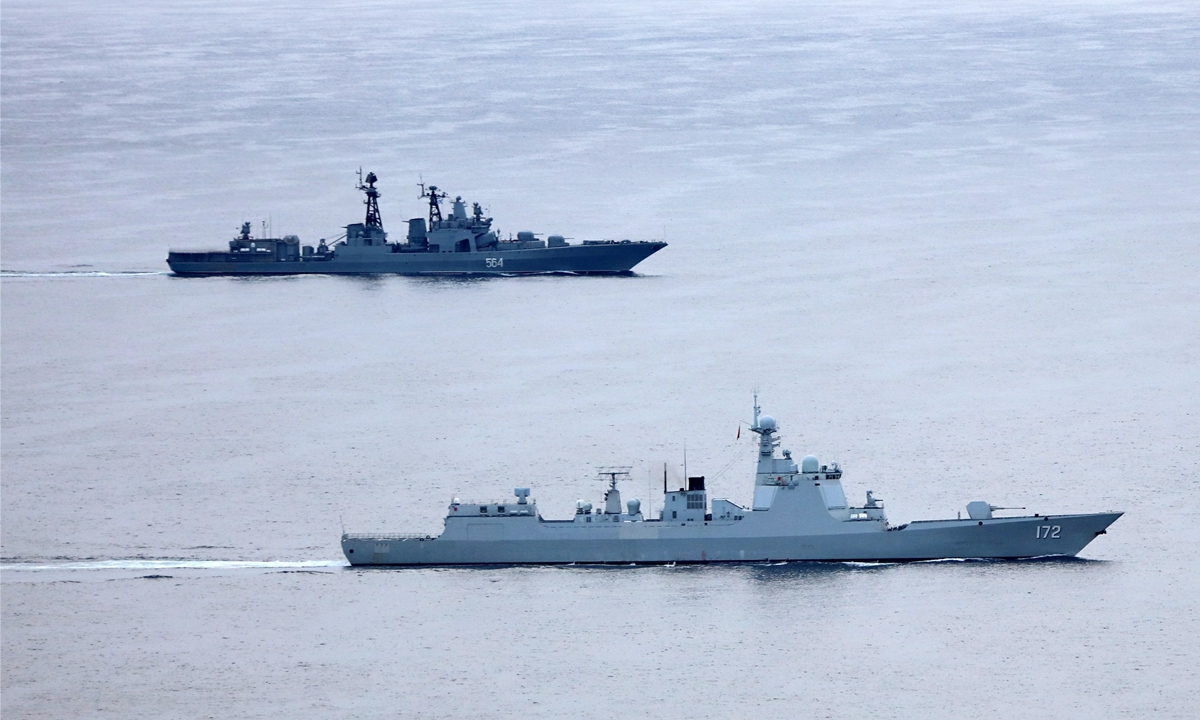
Chinese PLA navy’s destroyer Kunming sails with Russia’s large anti-submarine ship Admiral Tributs in the West Pacific on October 19, 2021. Photo: Li Tang
A China-Russia joint naval ships formation which included a total of 10 warships and six carrier-based helicopters carried out the joint maritime patrol in the Sea of Japan, the West Pacific and the East China Sea, during which they organized exercises over joint sailing and joint maneuvers and conducted live-fire drills.
The patrol was held right after China and Russia wrapped up a joint naval exercise in the Sea of Japan from October 14 to 17.
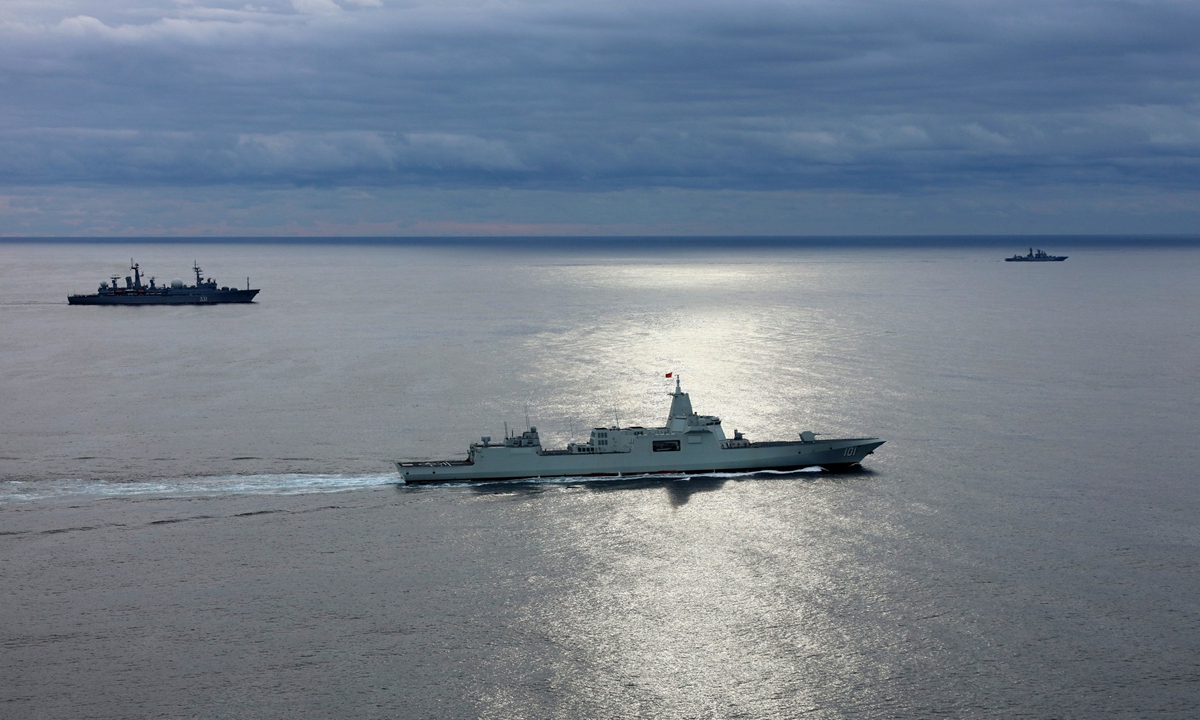
A China-Russia joint naval ships formation sails in the West Pacific on October 19, 2021. Photo: Li Tang
Immediate exercises including crossing, joint mobility and live fire after the joint naval drill is closer to the situation of actual combat and able to test and improve the forces' capacity of continuous operation and capacity to remain combat ready in open seas. It could also improve Chinese and Russian navies' capacity to deal with maritime security threats, Zhang Junshe, a senior research fellow at the Naval Research Academy of the People's Liberation Army (PLA), told the Global Times on Saturday.
He noted that the first China-Russia joint sea patrol in waters in the West Pacific is of vital significance in sending a clear signal and practicing real world drills.
China and Russia are two permanent members of the United Nations Security Council and shoulder the responsibility to sustain world peace. "The arrangement would enhance bilateral trust between China and Russia, develop comprehensive strategic partnership of the two countries in the new era, as well as safeguard international and regional stability," Zhang noted.
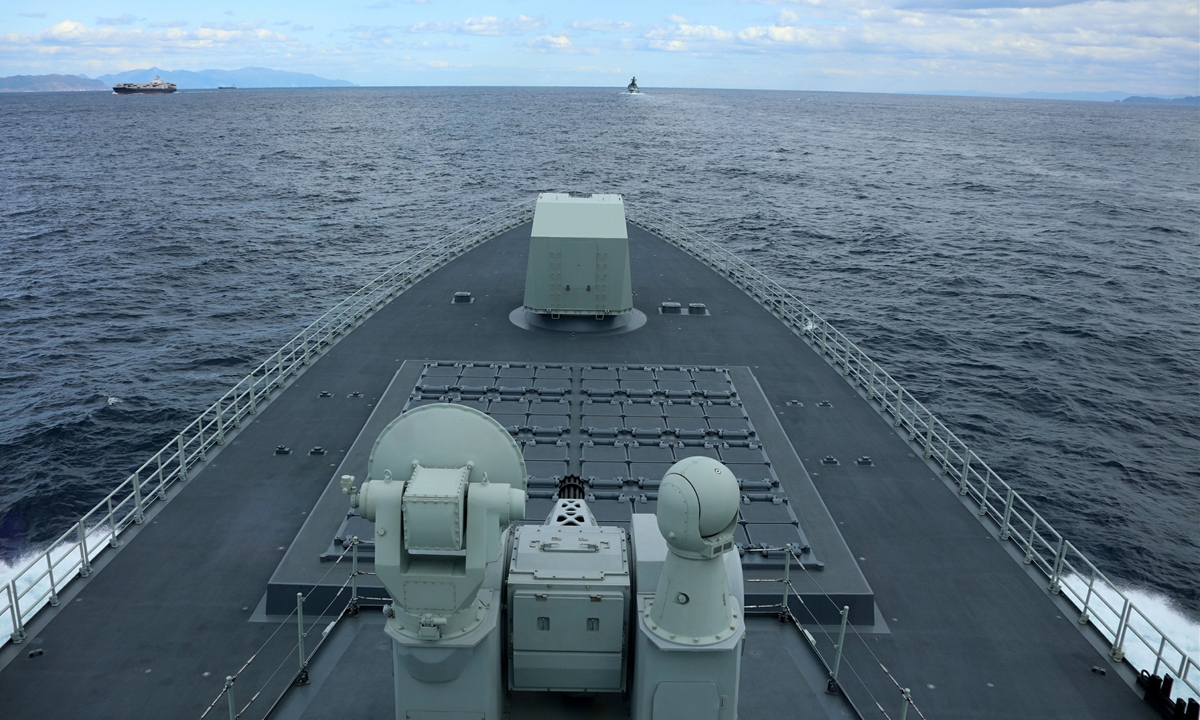
A China-Russia joint naval ships formation passes through the Tsugaru Strait on October 18, 2021. Photo: Li Tang
Military expert Song Zhongping told the Global Times that the latest joint sea patrol showed high degree of actual combat. Immediately transformation from drill to patrol is a mechanism transforming from peacetime to wartime status. "The formation of such mechanism indicates that the capacity of China and Russia to make quick reaction in military cooperation is improving fast," Song noted.
In the future, joint air patrol and joint naval patrol between China and Russia will become increasingly common, Song said. Air-sea joint patrol would also follow, which demonstrate deeper China-Russia friendship and improved China-Russia joint operation capacity, as well as stronger actual combat capacity.
"The formation of China-Russia joint combat capacity would bring about attacking measures at multiple layers and improve the forces' abilities to perform military tasks. It will provide more options to deal with regional conflicts such as terrorist attacks," Song said.
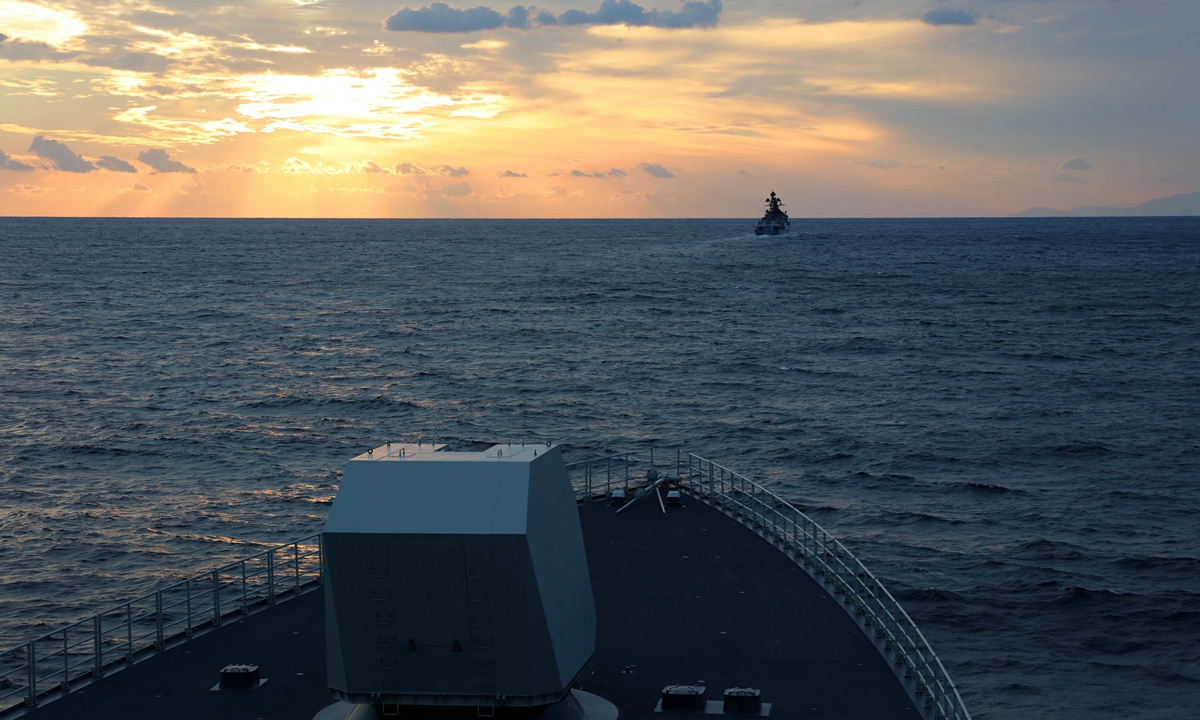
A China-Russia joint naval ships formation is about to enter the Osumi Strait on October 22, 2021. Photo: Li Tang
A statement from Russian Ministry of Defense said on Saturday during the practical actions, the battle ships sailed more than 1,700 nautical miles in total.
During the mission, the joint formation has strictly abided by international law and did not enter territorial waters of other countries, the Chinese Ministry of Defense said.
Previously, Japanese media had hyped up the joint formation's passage through of the Tsugaru Strait, but Chinese military experts noted that the Tsugaru Strait is no territorial water, and warships from any country have the right to transit, which means the transit of the Chinese and Russian vessels were in line with the international law and well within the bounds of standard naval practices.
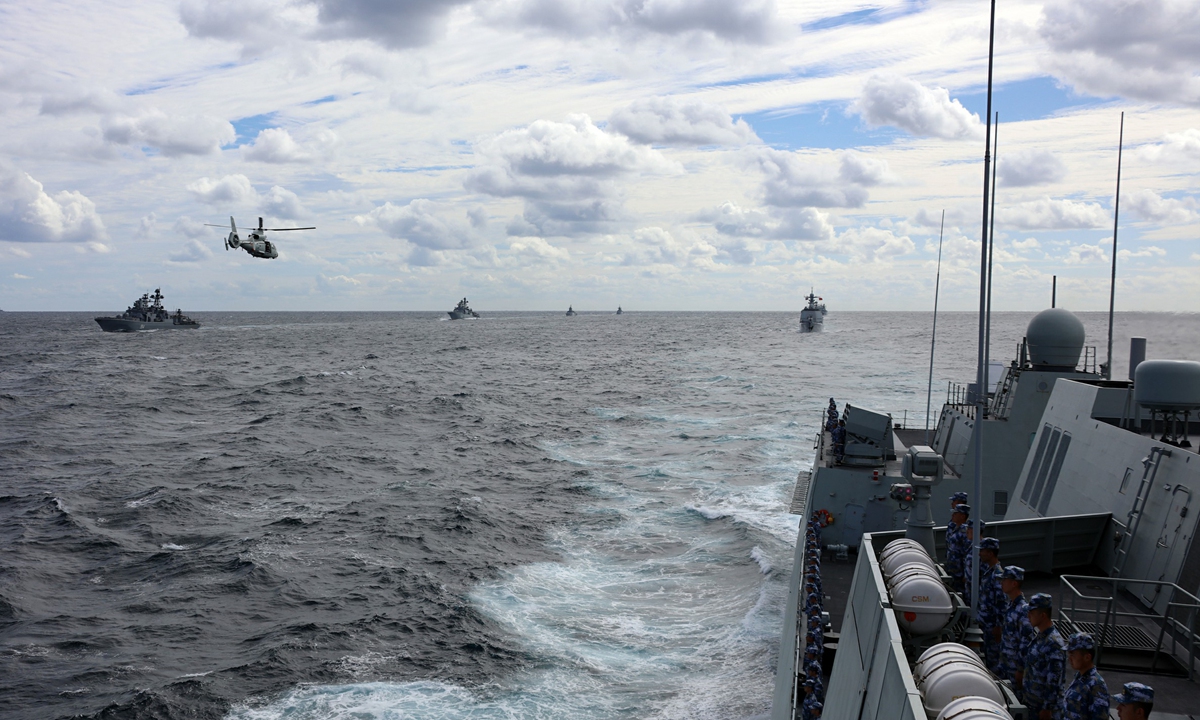
A China-Russia joint naval ships formation sails in the East China Sea on October 23, 2021. Photo: Li Tang
The joint maritime patrol is aimed at further developing the China-Russia comprehensive strategic partnership of coordination for the new era, elevating the joint action capabilities of both nations and jointly maintaining international and regional strategic stability. It's a part of the annual cooperation plan between the two nations and is not targeted at any third parties, the Chinese Ministry of Defense stated.
Since 2019, air forces from China and Russia have conducted annual joint strategic air patrols over the East China Sea and Sea of Japan. The joint sea patrol for the first time has built on enhanced military cooperation between the two strategic partners, Chinese military experts said.
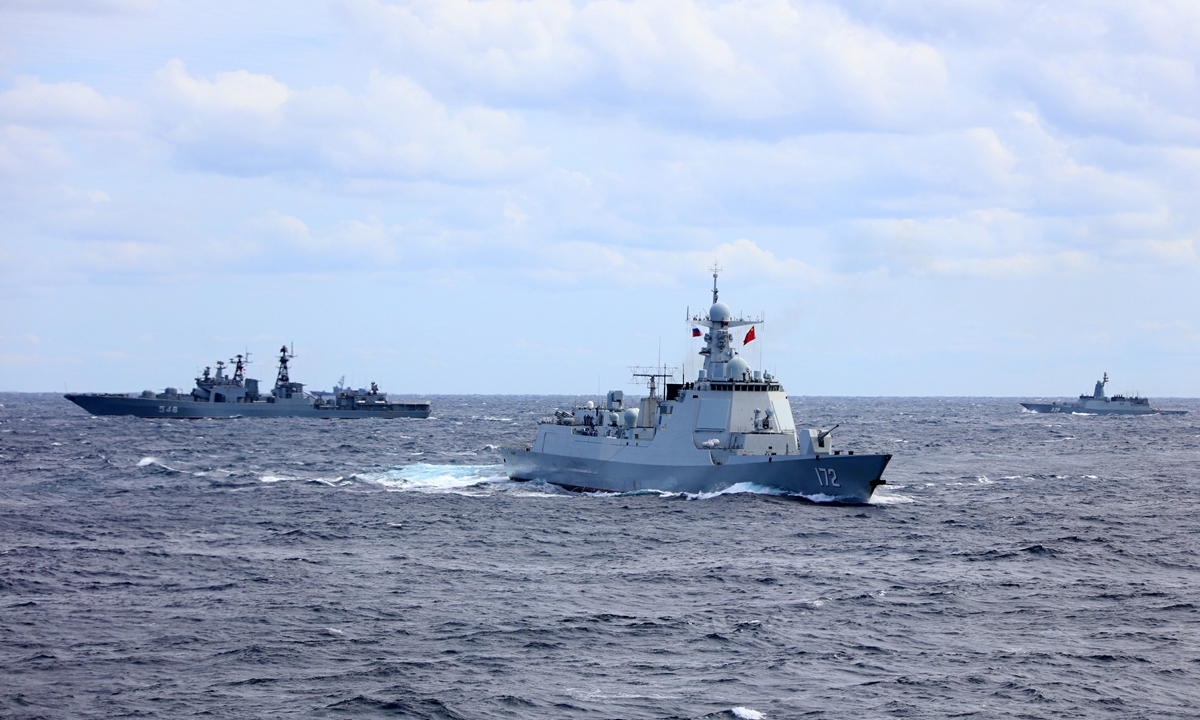
A China-Russia joint naval ships formation sails in the East China Sea on October 23, 2021. Photo: Li Tang
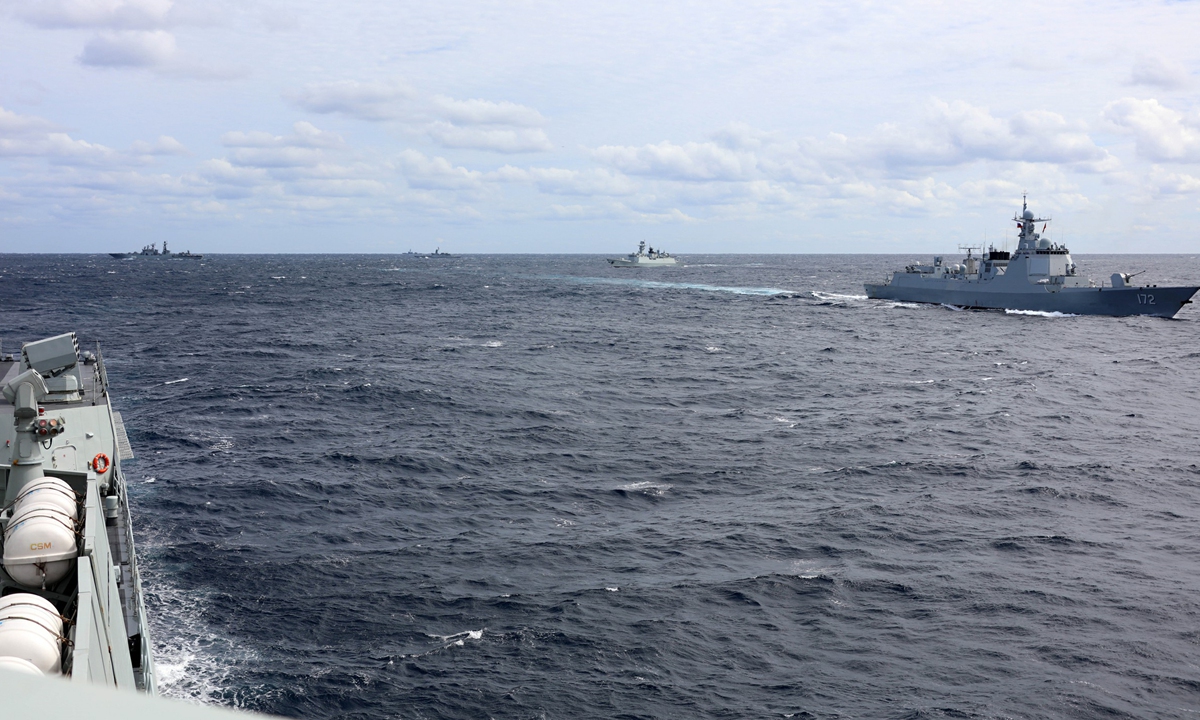
A China-Russia joint naval ships formation sails in the East China Sea on October 23, 2021. Photo: Li Tang
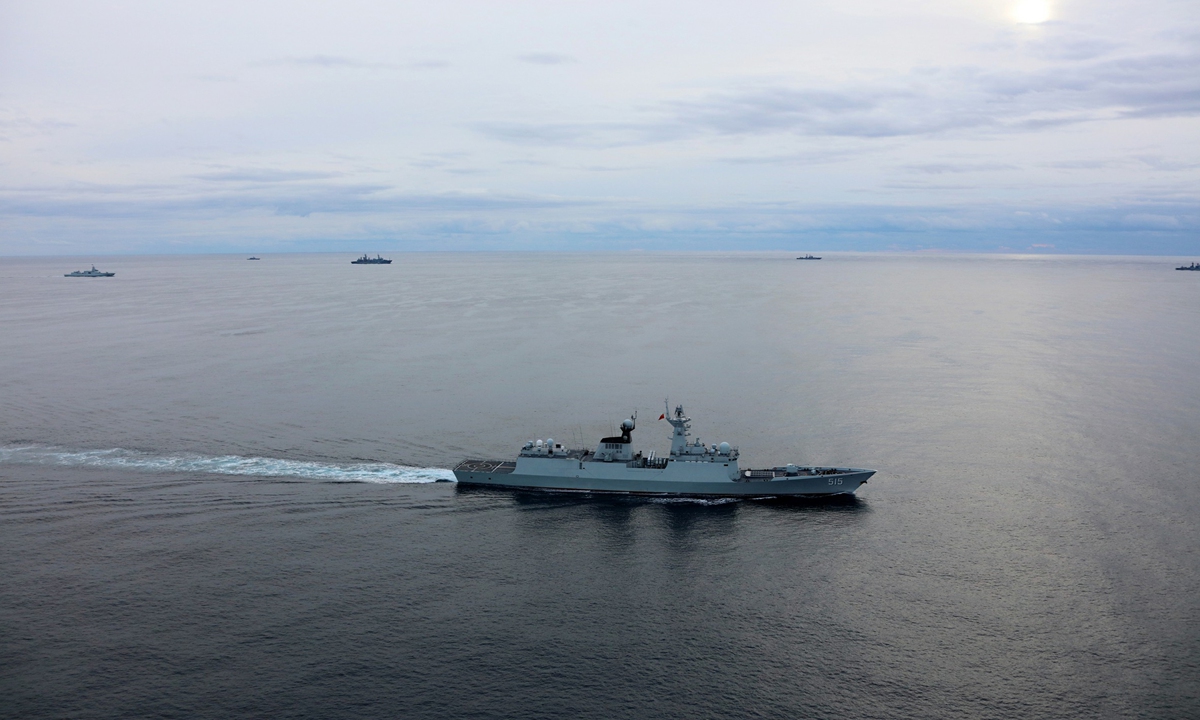
A China-Russia joint naval ships formation conducts joint exercise in the West Pacific. Photo: Li Tang
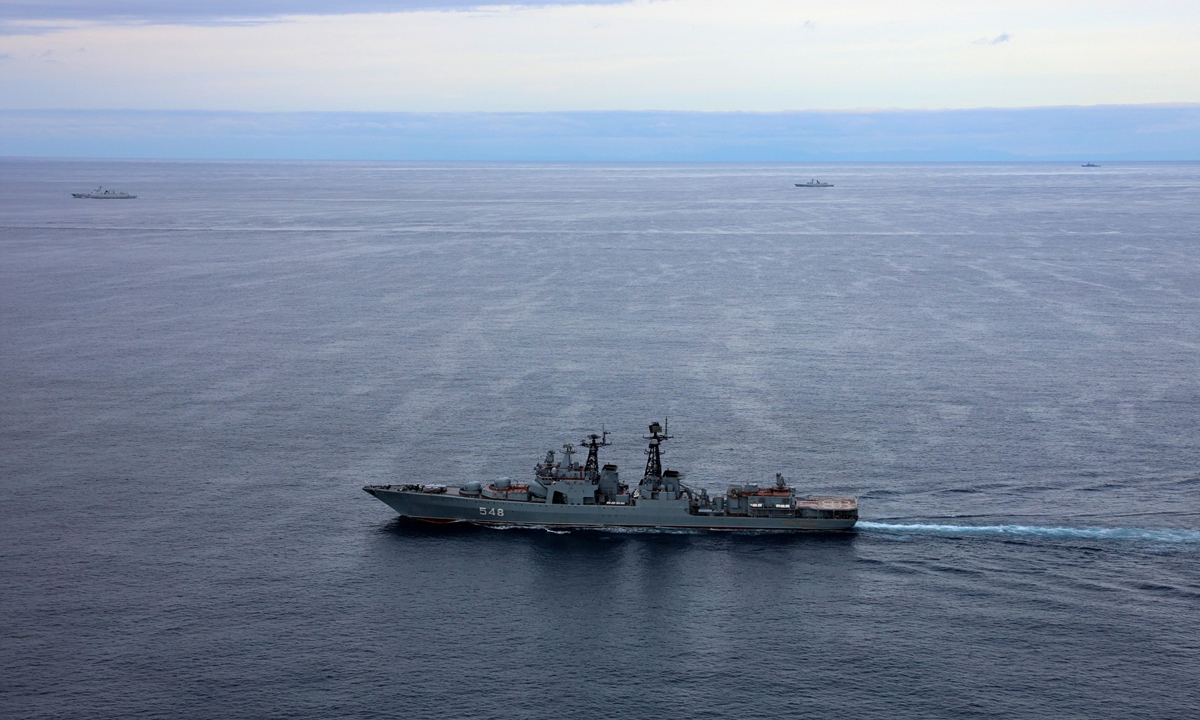
A China-Russia joint naval ships formation conducts joint exercise in the West Pacific. Photo: Li Tang
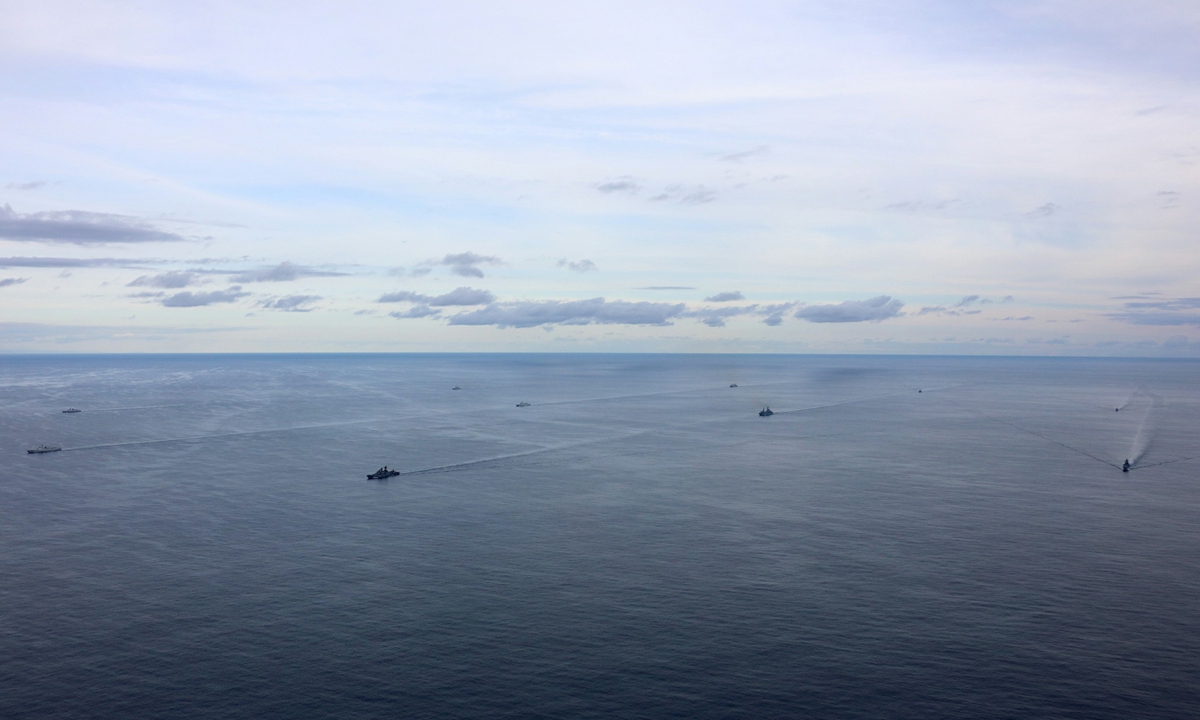
A China-Russia joint naval ships formation conducts joint exercise in the West Pacific. Photo: Li Tang
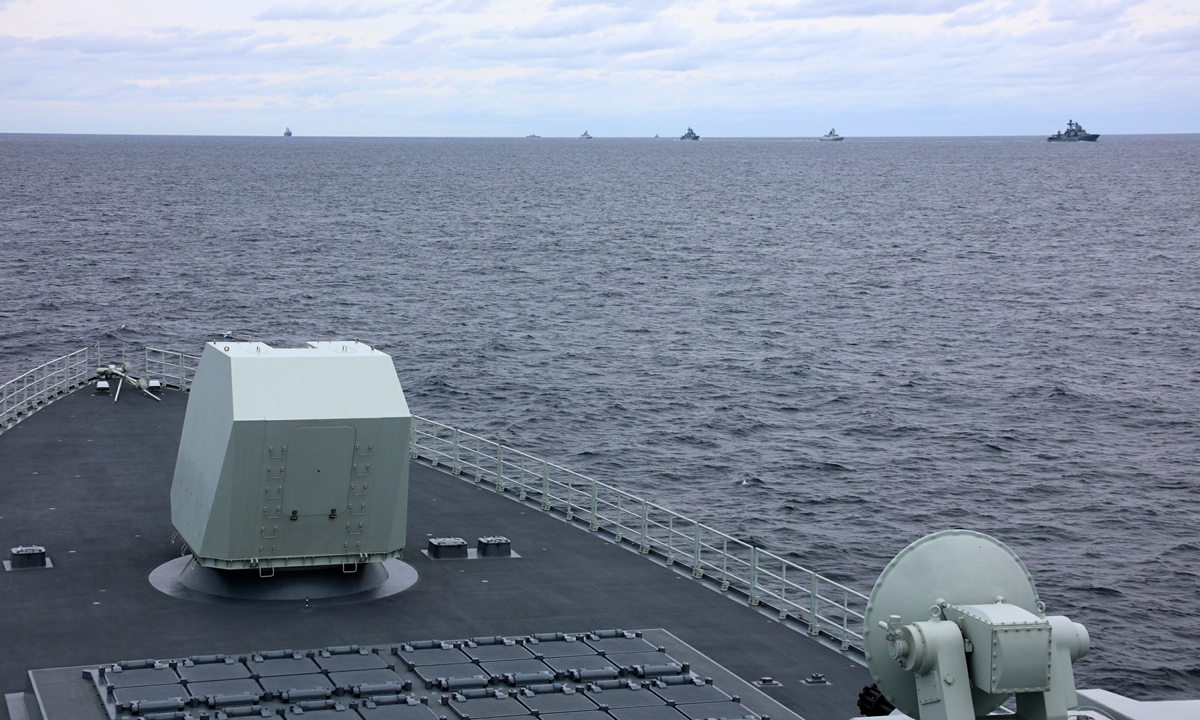
A China-Russia joint naval ships formation conducts joint exercise in the West Pacific. Photo: Li Tang
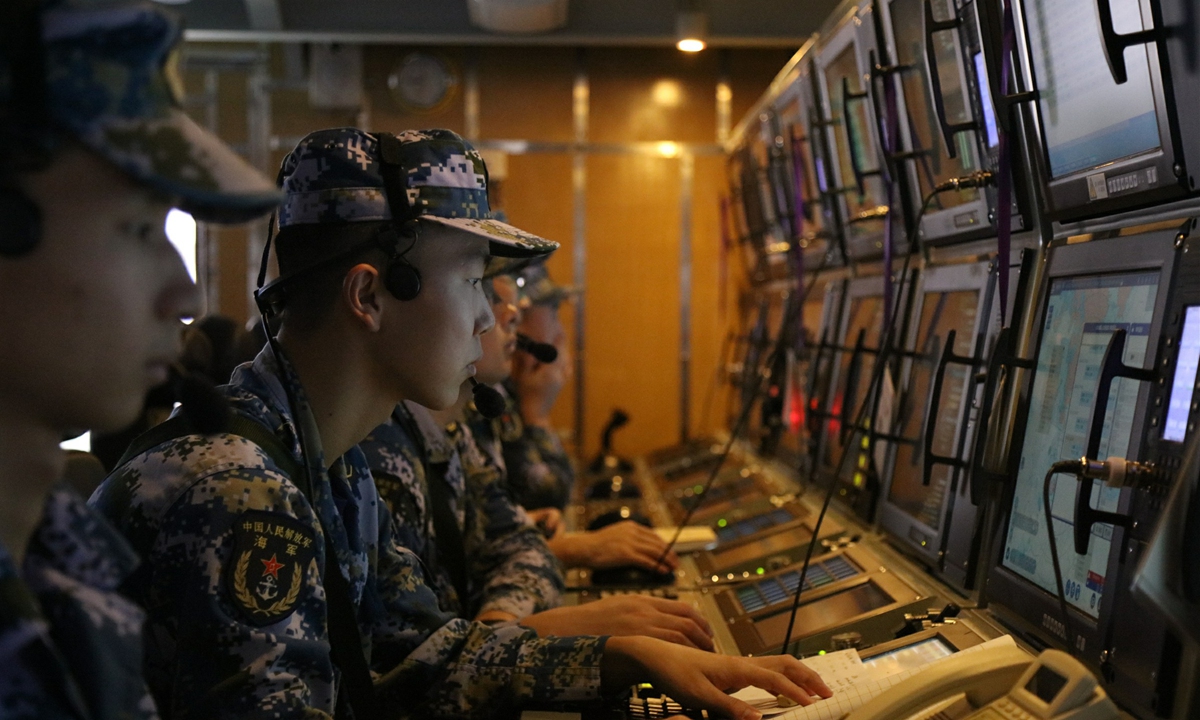
Officers and soldiers on China’s guided-missile destroyer Nanchang closely monitor the air and sea conditions. Photo: Li Tang
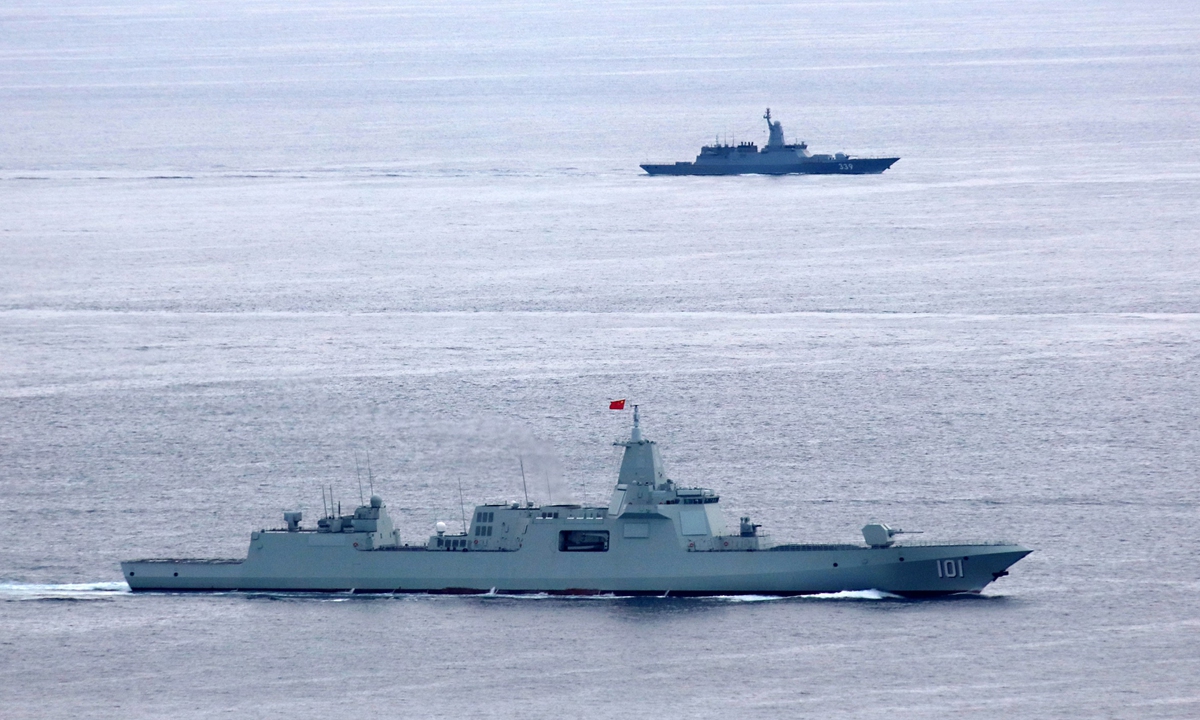
Chinese guided-missile destroyer Nanchang sails alongside a Russian frigate. Photo: Li Tang
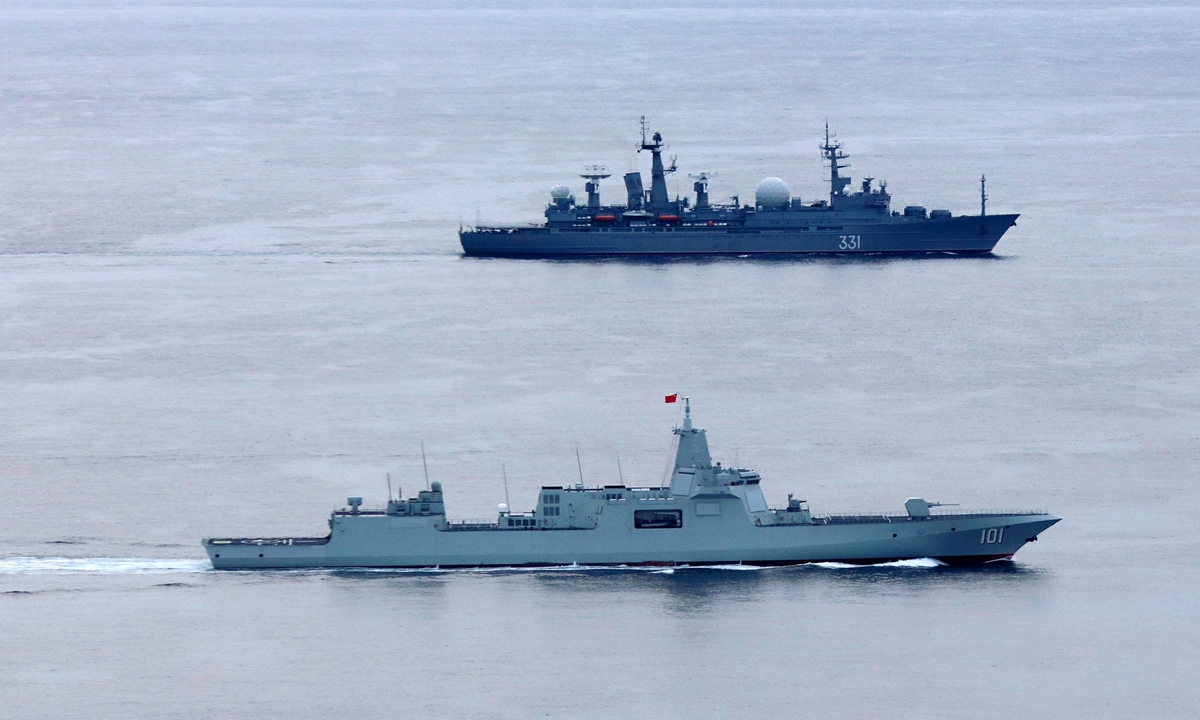
China’s guided-missile destroyer Nanchang sails alongside Russia’s command ship Marshal Krylov in the West Pacific on October 19, 2021. Photo: Li Tang
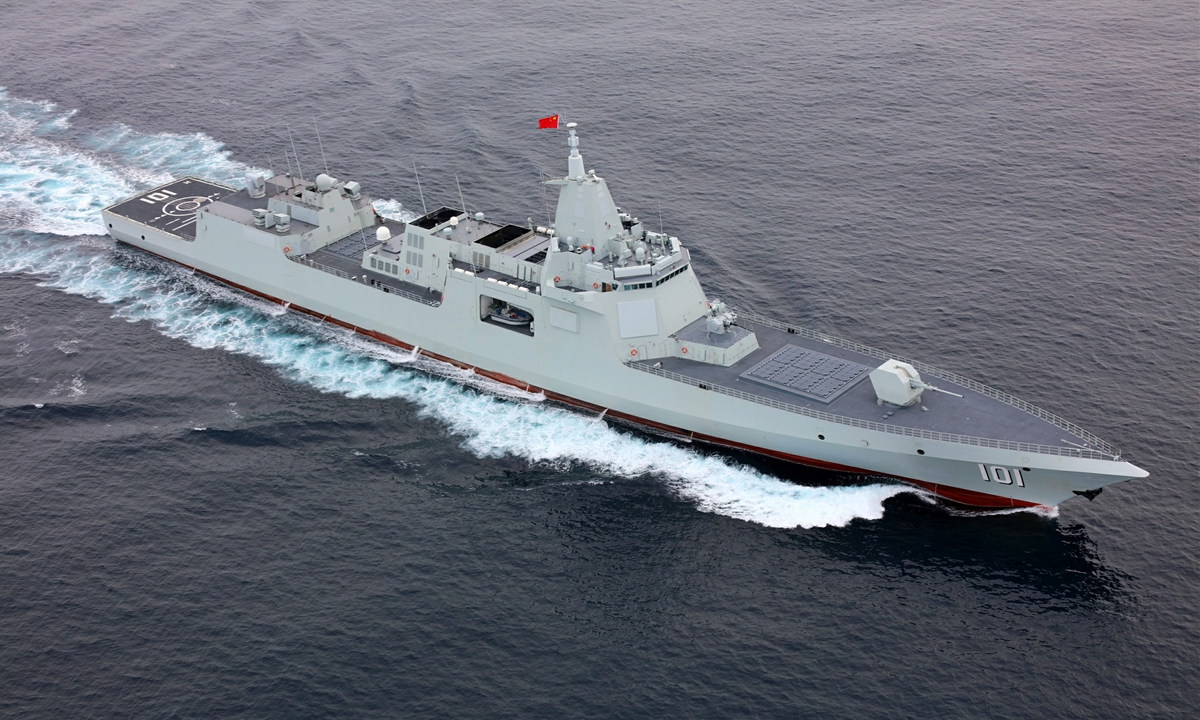
China’s guided-missile destroyer Nanchang sails in the West Pacific. Photo: Li Tang
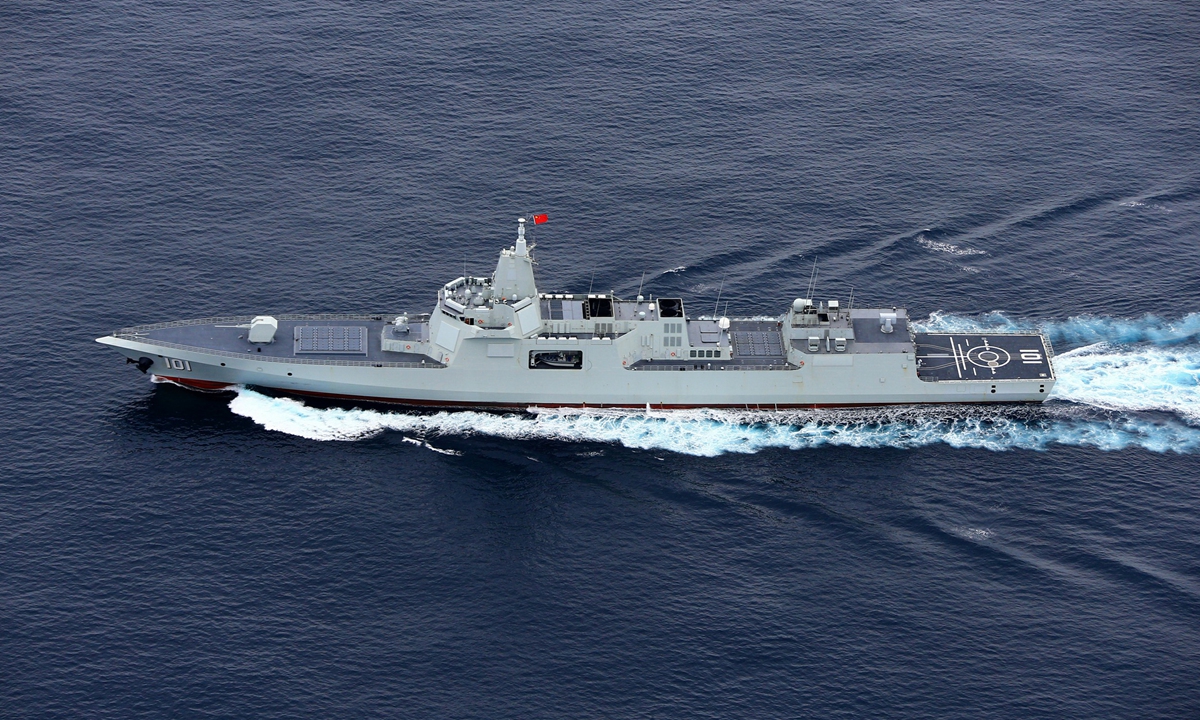
China’s guided-missile destroyer Nanchang sails in the West Pacific. Photo: Li Tang

